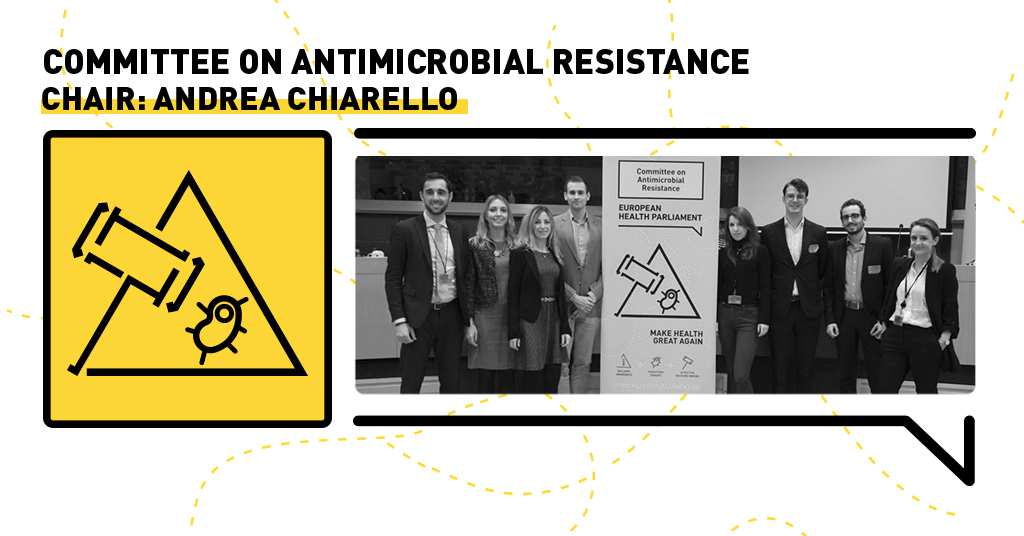NEWS > SPOTLIGHTS

January, 26, 2018
The second EHP plenary delved quite significantly into the issue of AMR with several speakers, including MEP Nicola Caputo, identifying it as one of the biggest health challenges of our times. We were particularly inspired by the talk of Nadine Bongaerts, a PhD candidate researching how synthetic biology could contribute to combating AMR, especially via identifying faster ways to screen and discover new antibiotics.
The second EHP plenary gave us plenty of ideas and insights to go forward with our work!
During this plenary, we received useful tips on how to write policy briefs. We are internally thinking about the structure that we should adopt in order to write our recommendations in the most straightforward and effective way.
We are currently considering building our recommendations around four main topics, which may still evolve. These are: (1) awareness raising, education, appropriate use of antimicrobials; (2) infections prevention, including the role of vaccination; (3) the environmental dimension of AMR; and (4) incentives and new business models to boost much needed R&D in new antibiotics, vaccines, alternatives to antibiotics and rapid diagnostics. We have divided our committees in subgroups which will work more specifically on one or more of the above-mentioned topics. Emerging ideas will be then shared and discussed with all team members during face-to-face or virtual meetings.
The information that we gather at AMR-related conferences, the exchange that we have with MEPs, and the meetings that we are holding with European associations engaged in the fight against AMR are all a fuel to writing our policy recommendations. We have already met with MEP Kadenbach, who is leading the European Parliament’s own initiative report on AMR, and we have scheduled meetings with relevant EU associations such as EFPIA, Vaccines Europe and the European Public Health Alliance (EPHA). We also plan to engage experts responsible for AMR programs within the Ministry of Health of some members states, such as Italy.
We understand that during the past couple of years much has been said and written about AMR. We are convinced that now it’s time to act, therefore we will strive to come up with recommendations that are as concrete and workable as possible. We understand that this is a challenge given the wealth of information out there, and also the scientific uncertainties around, for instance, how AMR spreads from the environment to humans, but we are determined to do our best to #MakeHealthGreatAgain!